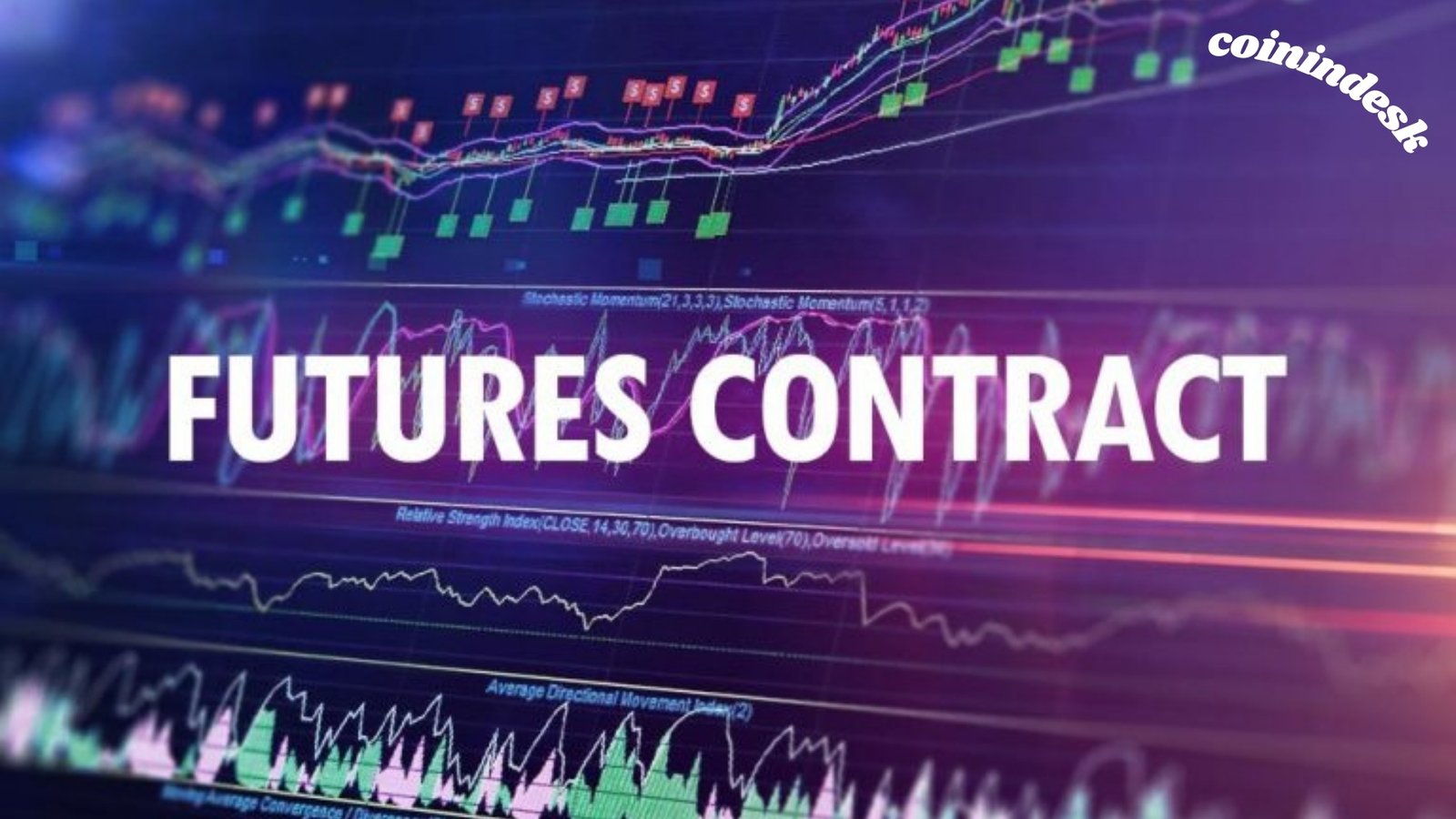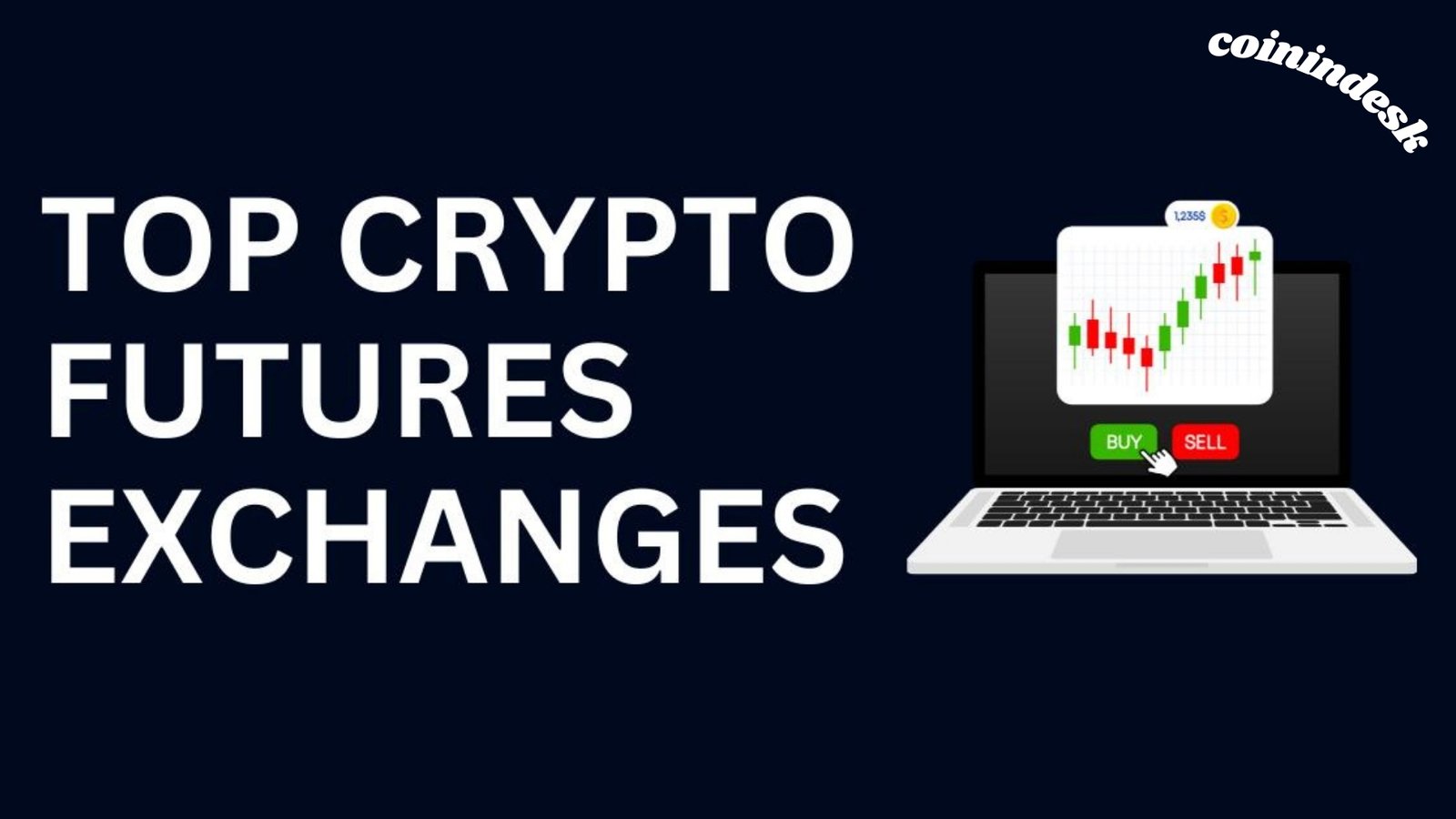Bitcoin Futures: A futures contract is an agreement to purchase or sell an item at a predetermined price and on a future date. Speculators can buy and sell these contracts, but corporations and industries can use them to hedge against potential price swings.
The word “futures” has likely been bandied about if you’ve kept up with the cryptocurrency scene for any time. The announcement of futures offers by CME, Cboe, and Bakkt has caused quite a stir among investors, eagerly anticipating additional institutional capital.
Why is everyone so invested in the future, and what exactly are futures? Also, can a typical individual investor participate in any way? Because of this, Coinindesk has put together this guide to Bitcoin Futures to help you understand what they are, why they are important, and how to trade them.
How Futures Contracts Work

An agreement to purchase or sell an item at a predetermined price at a future date is known as a futures contract. I’ll give you a basic example:
Oil is selling for $100/barrel. According to Trader A, the price will grow during the following three months. On the other hand, Trader B is worried that prices would fall. A and B, two traders, have agreed to buy 500 barrels of oil from B for $100 in three months. Regardless of market fluctuations, Trader A will continue to purchase the oil at the agreed-upon price. Trader A can make money in three months if his forecast about rising oil prices comes true. He can sell the oil at a profit at the current market price. However, if Trader A is mistaken and oil prices fall sharply, he will still be obligated to purchase the oil at the fixed price, but he will be left with an asset worth less than what he paid for.
Trader B, the vendor, follows the same reasoning—inverted. Even if prices go up, Trader B will still have to sell their oil for $100 per barrel; therefore, they will not profit. However, the vendor has successfully hedged against financial loss if the price drops.
Enter the Speculators
This is the core principle of futures contracts. They protect investors from the market’s swings and unexpected developments. Major industries often utilize them to understand better how much assets will cost in the next several months. There is a market for speculators because contracts can also be purchased and sold. The value of these contracts rises or falls as a function of the time remaining until their expiration and the changes in the market since their formation.
Consider the hypothetical $100/barrel oil purchase agreement we just made. As soon as the three months pass, the agreed-upon transaction must occur. If, however, the market price increases to $500/barrel in the last week leading up to that date (this is extreme, but it illustrates the idea), the holder of the option stands to earn $200,000 in profit. Despite the current market value of $ 250,000, purchasing 500 barrels at $100 each will only cost $50,000. Assuming the contract hasn’t expired, Trader A can easily transfer it to someone willing to handle barrel flipping if he’d rather not. Due to the high contract value, Trader A can still profit.
Bitcoin futures are essentially the same. You can buy Bitcoin to hoard and sell it later if you think its price will grow. Futures contracts let investors profit from Bitcoin price changes without holding the cryptocurrency. This may have benefits. Bitcoin trading is unregulated or has inadequate restrictions, unlike futures trading, which is hazy in many markets. Bitcoin investors are less certain that futures legislation will remain intact for five years.
Regarding regulation, futures allow investors to profit from Bitcoin in banned places. It’s just a contract—they’re not trading Bitcoin. Again, this suggests market earnings are feasible with less risk than direct market trading.
The Importance of Leverage
As a last perk, futures can provide leverage. Leverage occurs when an exchange lets you invest with less capital and capitals the rest. Imagine you only have $10 but would like to trade $100 worth of Bitcoin. If they provide leverage, the exchange will foot the bill for the $100 deal. Gains would be multiplied by ten, but the danger would be significantly larger. Your initial investment of $10 could be wiped out in the blink of an eye if the market takes a nosedive compared to buying the same amount of Bitcoin outright.
Put another way, if you invested $10 in Bitcoin and the market crashed, reducing its value to $9, you would have lost only $1. Additionally, you retain ownership of the Bitcoin, and its value is likely to rise again. Take the hypothetical example of using the same $10 to secure a 10x leverage position. The exchange will close your order and seize your funds to offset its losses if the market decreases by the same amount we just indicated, 10%. This means that your $100 position is now worth only $90.
Thus, the same terrible day can cause your asset’s value to drop temporarily or cause your entire account to be rendered worthless. Users with leverage can thus be “rekt” from seemingly little market movements. Futures contracts are appealing assets for high-risk traders because, in most cases, exchanges will permit significantly larger leverage on them than on direct market trading. Bitcoin futures shorting also uses leverage, as exchanges will “lend out” contracts with the stipulation that they must be repaid. If the value of Bitcoin decreases, the trader will be able to repay the loan at a lower price and keep the difference in their pocket.
Top Bitcoin Futures Exchanges

CME Group
The largest financial derivatives exchange in the world is the Chicago Mercantile Exchange, often known as CME Group Inc. Btc Future’s contracts are now available on this reputable institutional platform. This is not for the faint of heart but rather a way for serious traders to get their hands on Bitcoin via a reputable institution. Crypto futures on CME could be the best option for anybody seeking a reliable platform to buy and sell Bitcoin. Additionally, CBOE used to provide Bitcoin futures options, but they have since pulled the plug.
Bakkt
One of Bakkt’s owners is the New York Stock Exchange’s parent company, the Intercontinental Exchange (ICE). Bitcoin futures options were the primary motivation for the firm’s 2018 founding. It aspires to become the leading platform for digital currencies in the future and has worked with big names like Microsoft and Starbucks. It is not as long-standing as CME but managed by a prominent trader. Bakkt stands out as a platform for Bitcoin futures due to its singular concentration on digital assets.
Binance
Binance is one of the largest cryptocurrency exchanges in the world and offers a platform for trading futures. Some consumers may prefer this to using an institutional platform because it allows them to participate in a cryptocurrency-focused exchange. Due to Know-Your-Customer rules, creating an account will require some paperwork, but it shouldn’t be too different from any other large Bitcoin marketplace.
Using a legitimate cryptocurrency exchange for futures trading is advantageous because it provides more than Bitcoin contracts. Litecoin, Ethereum, Bitcoin Cash, XRP, and other significant cryptocurrencies are all available on the exchanges above’ diverse product offerings. Users are granted greater flexibility, which opens the door to more intricate strategies. One benefit is that you can start with less capital than an institutional choice. Opening an account with them does not necessitate that you be a well-established, affluent merchant. Cryptocurrencies aim to make financial instruments available to everyone, not just the wealthy.
Nevertheless, the lack of regulation of these exchanges and associated futures trading is the main drawback in most regions. Once again, how policies will be shaped in the future years is an unknown topic. Take Binance as an example; they just cut ties with US consumers. Although a new US-centric branch was swiftly established, the main point remains that these platforms’ policies are subject to change at any moment. These new, rather experimental enterprises do not yet operate inside a regulatory framework that is likely to remain relatively unchanged, in contrast to Bakkt and CME.
Now that we’ve explained bitcoin futures contracts and where to get them, it is ultimately up to each trader to determine if they are a financial vehicle that piques their interest. The pros and cons may not be significant enough to warrant the investment for some, and some would rather own the asset outright than be bound to a contract involving it. Those who exclusively trade cryptocurrencies in the future may stimulate the market and interest.
Decentralized asset-based futures will likely continue to gain traction as the market develops, regardless of your feelings about them. Users need to understand how these products function and how they influence the future of the cryptocurrency markets, even if they do not intend to trade them.


